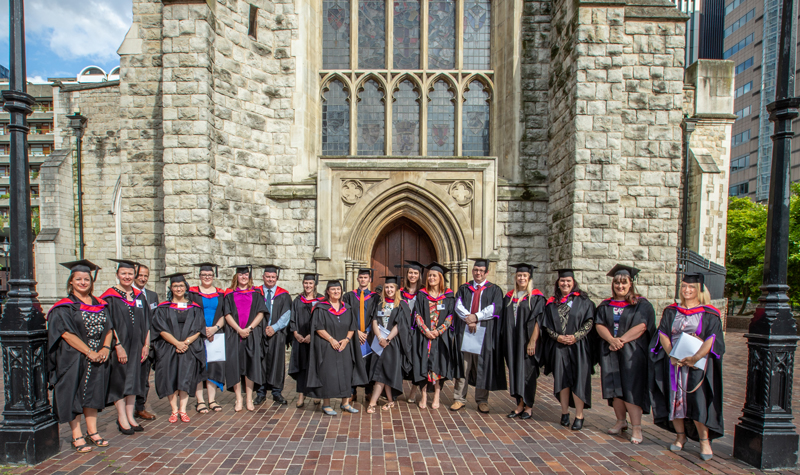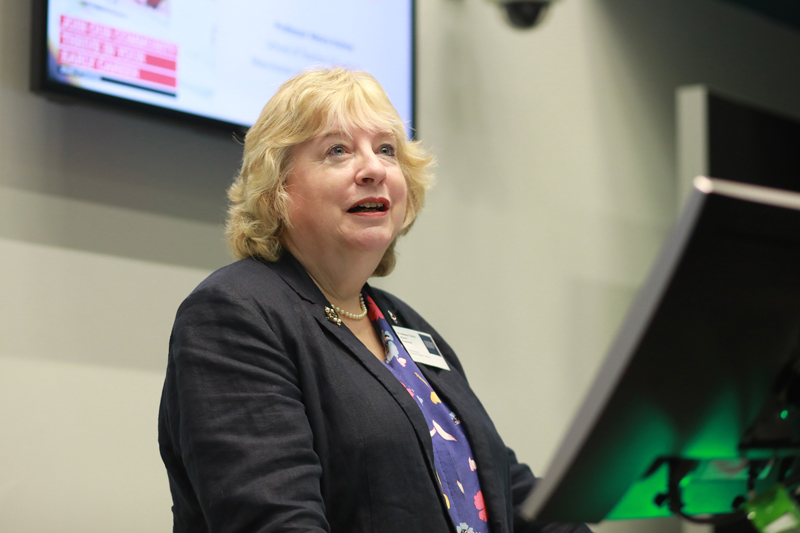The Chartered College of Teaching marks its fifth anniversary this year, having launched with quite a few misgivings expressed by ministers and teaching unions. Chief executive Dame Alison Peacock tells Jess Staufenberg how her organisation is progressing in its aims
When then-education secretary Nicky Morgan signed off on the Chartered College of Teaching on her last day in office, many were still unconvinced, remembers Dame Alison Peacock. In case she needs introducing, Peacock is a former primary school headteacher who became the college’s chief executive in January 2017.
When it launched, with £5 million of government funding, some said they feared that it would work in the interests of senior managers rather than frontline teachers. Others dubbed it a return to the unpopular General Teaching Council under New Labour, which had a mandatory fee.
“Some people were suspicious that Michael Gove was imposing a teaching council on the profession again,” she muses. “And the unions were suspicious that the college was a threat to them.”
Then-schools minister Nick Gibb was no fan of the college either. “I think Nick Gibb was always suspicious of a professional body informed by the opinions of teachers,” retorts Peacock, politely but firmly.
This all-round suspicion shows how politicised questions of ownership and autonomy can be in schools. That’s ironic, given that independence and professionalism was the college’s mission. It aimed to “raise the status of the profession and put it on a par with other respected occupations” as “a platform for knowledge mobilisation”.
It seems a towering task. So, with the CCT celebrating its five-year anniversary this year, how is it doing?
Peacock describes a three-pronged approach.
The college’s biggest route to engagement with the sector is membership. Members and fellows get access to CPD opportunities through webinars, conferences and high-level events. Members can be trainee teachers, while fellows must have ten years’ teaching experience and be nominated (if you’ve ever seen someone use the post-nominals FCCT, they’re a college fellow).
Building that membership was weighing on Peacock’s mind back when she got the job. She remembers Jon Coles, chief executive of United Learning academy trust, telling her reassuringly: “‘Once you’ve got 25,000 members, you’re home and dry.’” She says she thought at the time: “‘I can’t even imagine 25,000!’”
But now membership has hit 45,000 teachers and 1,400 fellows. Although around ten per cent of those teachers are based in international schools outside the UK, it’s still strong numbers for England-based staff. The college is aiming for 50,000 members by 2024.

The membership matters because it is crucial to the college becoming self-sufficient, something it achieved in March 2020, as promised. It means the CCT is now truly an independent body for teachers.
Latest accounts show income from membership almost doubled last year to just over £1 million – half of its overall income. “I think there were probably quite a few people who were surprised we were able to stand on our own two feet,” Peacock smiles.
There were probably quite a few who were surprised we could stand on our own two feet
But its not all rosy. Last year the college posted an overspend of about £30,000, down from banking nearly £400,000 when it was still propped up by government cash (it had been awarded the £5 million to last four years).
“This was the first year transitioning away from the DfE start-up funding,” says Peacock, and the deficit was agreed upon in advance “as part of the financial transition plan”.
But the accounts also show it remains reliant on donations, which made up more than £870,000 of its income last year.
“It will be completely sustainable,” she tells me, adding that all funding streams, including donated income, are targets for growth. “We’re hugely grateful for our funding from philanthropic organisations. That buys us time to grow the membership.”
Peacock wants college membership and chartered status programmes to grow from 55 per cent of its income to around 77 per cent for the 2022-23 financial year.
Annual accounts describe a push for “sustainable growth in paying membership”. Early-career teachers pay £23.50, members pay £47.50, and fellows pay £89 a year.
But one-fifth of all members pay nothing at all, because they’re student teachers. Increasing membership rests on converting those with freebies into paying, and Peacock reckons about 70 per cent can be converted this way.
The second key aspect of the college’s work is its magazine, Impact. It goes out to members three times a year and explains evidence on teaching and learning, including the college’s own research projects. The editorial board reads like research royalty: Becky Francis, Dylan Wiliam, Rob Coe, Alex Quigley, to name a few.
It has positive feedback from the sector. Matt Hood, principal, Oak National Academy, said, “One of the under-appreciated aspects of the chartered college’s work is how it shares research and evidence into effective teaching,” with Impact “at the forefront of collating this information”.

But the real jewel in the college’s crown, and its raison d’etre, is the chartered teacher status programme. This is a four-module online course that teachers can study across three years, including a research project, certificate in evidence-informed practice and a video submission of them teaching.
Each module costs between £99 and £179. On completion, the teacher can place the letters (CTeach) after their name. Last year, £80,486 of income came from the chartered status programme.
One thing I like is that graduates continue to be assessed online every three years to ensure, as Peacock puts it “you’re still up to speed”. It seems admirable that the college checks back in with its alumni like this. There is also now a similar pathway for senior leaders, called ‘chartered teacher (leadership) status’.
However, David Weston, who was a college trustee from 2018 to 2021 and now runs the Teacher Development Trust, acknowledges chartered teacher status is “not yet fully established evenly across the profession”.
In its first cohort, 360 teachers completed chartered teacher status. There are 1,000 signed up on the second cohort, who will finish in a year.
But out of a teaching workforce of 450,000, it’s still pretty small beer. Peacock is both realistic and optimistic.
“We’ve got ridiculously ambitious targets that probably need revisiting – we’re looking for thousands of teachers to be accredited,” she acknowledges. “But I think it’s one of those things that will snowball.”
Interestingly, 270 teachers have completed the certificate of research-informed practice as a standalone award, and Peacock hopes these will join the full programme: “I think they will get the bug!”
But I’m not quite convinced. More teachers choosing standalone certificates than chartered status suggests a time and workload issue. Should schools be obliged to give staff time out?
“I don’t think at the moment we’re in a position to mandate that, but the evidence is that where teachers get time on continuous professional development, it makes a massive difference,” nods Peacock.
Where teachers get time on CPD, it makes a massive difference
I also wonder if teachers are convinced that chartered teacher status holds real currency across the sector.
Does the college have proof that teachers with chartered teacher status have greater impact with pupils?
For Advanced Skills Teacher status (which was scrapped in 2013), teachers were physically observed teaching, and if they passed, they received a pay rise. But for the CTeach award, teaching practice is shown in one video, and there is no guaranteed pay rise.
The University of Bedfordshire did a “full-scale evaluation” of the chartered teacher status pilot, says Peacock, but this was to check for feedback.
“You’re quite right,” she says. “As an evidence-informed organisation, we need to use evidence and make sure we’re not skipping off down our own path.”
Some have suggested attaching pay rises to such awards would help. But Peacock says that would require more cash, which “governments can always choose to end”. It’s a fair point, but it may not be enough incentive for time-strapped teachers.

So if uptake really is going to “snowball” as Peacock hopes, it sounds as though the status of chartered teacher status still needs raising.
That’s why the college’s latest call could be its most important to date. In April last year, it published a report calling for CPD to be quality assured under a national badge scheme, with providers assessed against nine criteria, to help schools and teachers choose the best provision.
Those who met the standards get a “designated badge”. It was seemingly a pitch for the College to expand its role.
“There’s quite a disparate, mish-mash market out there for CPD,” explains Peacock. “We’re not wanting to seize hold of everything, what we’re wanting to do is build an aligned accreditation.” Whether the pitch will be successful, is yet to be seen.
Giving the college a much bigger role in CPD accreditation could be the solution to the modest uptake of chartered status: the college could become a truly national name. Finally, there might be a recognised, revered teacher status, that is truly profession-owned.














Your thoughts